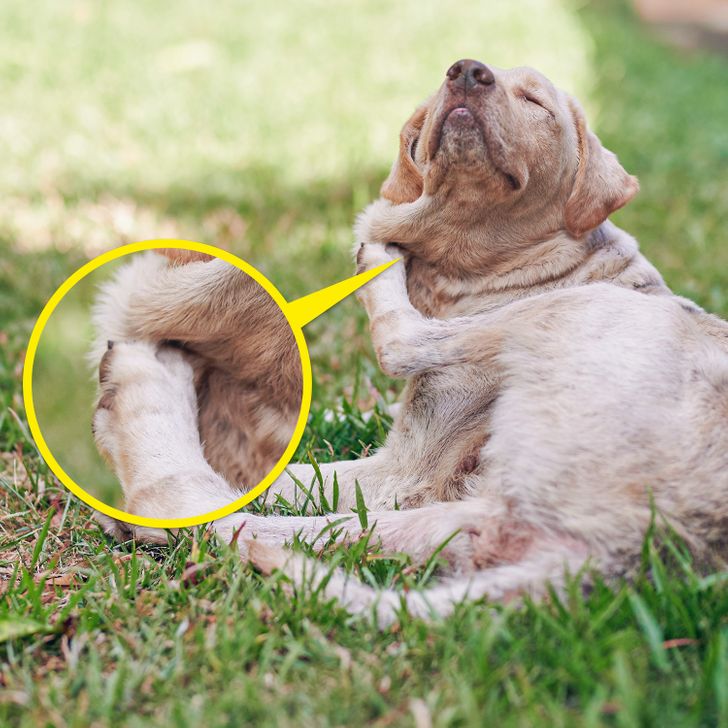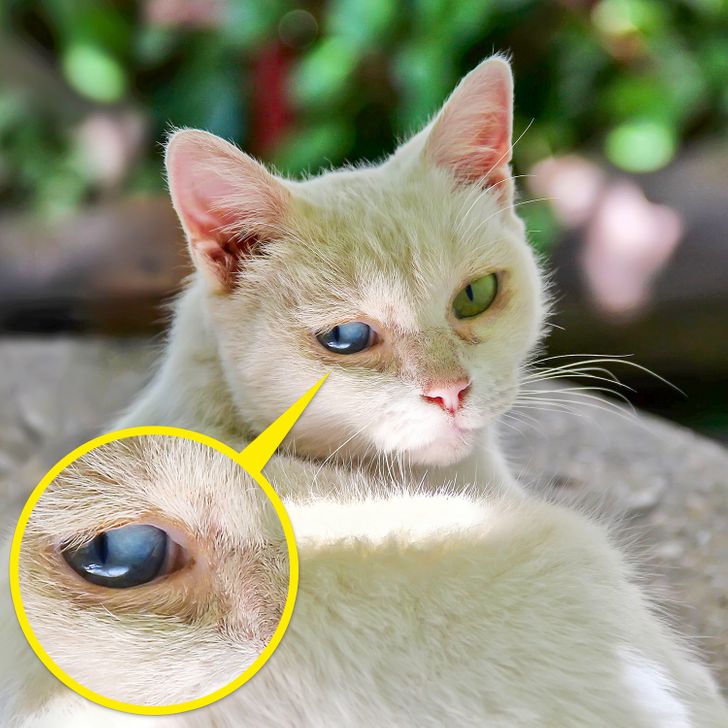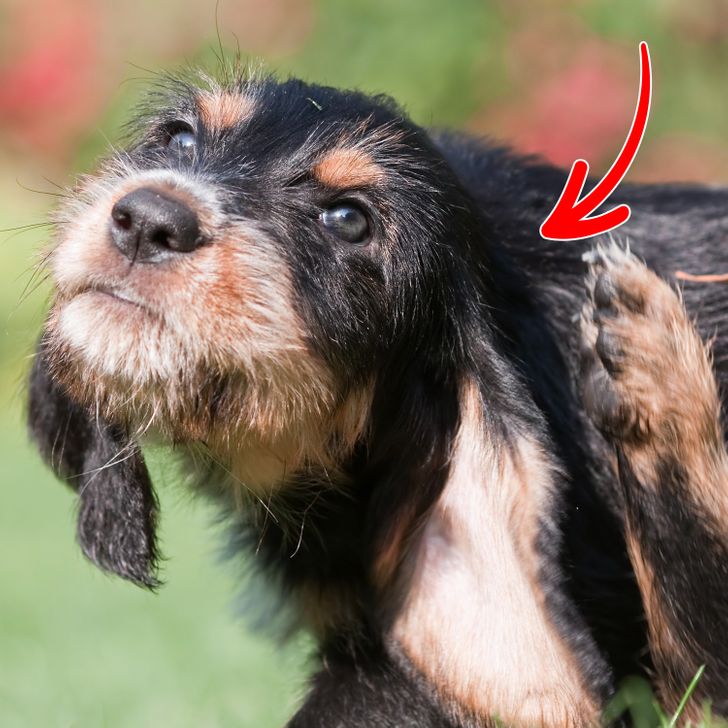Being overweight isn’t the only weight-related problem that could put your pet’s health at risk. A sudden loss of weight for no apparent reason could also be a clear symptom of a serious underlying illness in pets.
- The causes of weight loss in pets should always be determined by a veterinarian after a careful examination, to find out what’s really happening. Some of the most common reasons for an animal to lose weight very quickly include internal parasites, hyperthyroidism, cancer, or heart problems — so make sure you go to your vet as soon as possible.
6. Constant scratching
Scratching, in dogs and cats, is a normal habit that, at first sight, should not involve any risk for their health. However, if on top of scratching itself constantly, your pet is also losing hair on different parts of its body, it might be suffering from a disease.
- Dogs that feel itchy and constantly scratch themselves could be suffering from a food allergy, dermatitis, fungus, or skin irritations, among other things.
- Cats often scratch or lick themselves as if there was no tomorrow when they feel a part of their body is itchy. That’s normal. However, if they do so constantly for days, it might be due to a fungus, allergies, eye problems, or even an object stuck in the cat’s nose.
7. Lack of hair around the eyes
You should always pay attention to hair loss in pets. If it happens around the eyes, your pet could be suffering from a serious condition and should be examined by a veterinarian as soon as possible.
- If your dog has hairless areas around its eyes, and if, in addition, it is accompanied by reddened areas, this could be caused by mites, a compromised immune system, fungi, or allergies.
- If your cat has lost hair around their eyes, this could be related to constant scratching caused maybe by an itch or a specific discomfort. Those, in turn, could be caused by conjunctivitis or even a foreign object that ended up in the cat’s eye.
8. Doesn’t want to go out for a walk or play at home
When a pet refuses to participate in its daily activities or even walk, most of the time it’s due to an inflammation in the joints that makes it very difficult for them to play or in severe cases, to walk.
- If your pet refuses to walk or has difficulty with simple physical activities, it could be a symptom of osteoarthritis, pain in their paws, or even the possible tearing of the cruciate ligament in the knee, which can be very painful.
9. Constantly shakes its head or scratches its ear
When a pet scratches its ears and shakes its head frantically, it is a clear sign that something might be happening in or around the ear region. Head movements that clearly show that your pet is trying to get rid of something stuck in its ear or intense scratching in that area are reasons to go to the vet. He or she will then examine your pet to figure out exactly what the problem is.
- Keep in mind that if your dog shakes its head and constantly scratches around the ear area or neck, it could mean that it has a foreign object stuck in its ear, otitis, ticks, or bruises, among other possible causes.
- If your cat feels discomfort in its ears and shakes its head constantly, it could be a symptom of having a foreign object stuck in its ear, an infection, inflammation, otitis, or allergies, among other possible causes.
10. Sudden overeating in a compulsive way
Just like lack of appetite, pets can experience a sort of anxiety that leads them to eat more food than they really need. This could also be a symptom of an underlying health issue in your pet. Clearly, there are breeds of dogs and cats that need to eat more than others. And since there are so many varieties of pets, each one can be different, so it’s important to ask for a vet’s opinion.
- If your dog continues asking for food desperately, even after having eaten its normal intake, it might be suffering from diabetes, hyperthyroidism, problems in the digestive system, or intestinal parasites that lead it to overeat.
- On the other hand, cats, especially spayed cats, are more eager to eat than before their surgery. That, of course, changes their habits and makes them gain weight. Polyphagia can also be caused by certain medications, hormonal problems, diabetes, or hyperthyroidism.









